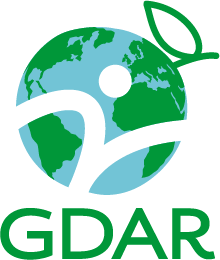A syndemic approach to the prevention of diet and physical activity related non-communicable diseases
We are now all very familiar with epidemics and pandemics. These typically arise when one disease or condition spreads rapidly or globally.
The concept of a ‘syndemic’ (from ‘synergistic epidemic’) describes the co-occurrence of interacting epidemics and risks. Indeed the ongoing global pandemic of Covid-19 has been described as a syndemic because of the ways it interacts with non-communicable disease.
In GDAR’s research, the interaction of mass urbanisation, rapid climate change, and epidemics of poor diet and rising physical inactivity constitute another such syndemic. These forces all interact to increase risks of non-communicable disease. Therefore, without considering them together we cannot create effective and sustainable interventions to improve health in low and middle income countries.
Our syndemic approach aims to develop interventions that will work in two ways:
- by reducing the exposure of individuals in cities to these syndemic hazards
- by reducing the vulnerability of the wider built and food environments to these hazards.
As the urban poor are most affected by these hazards, we will build understanding of individual exposures by examining how the hazards cluster with household and neighbourhood deprivation.
The wider environmental influences will be explored by examining the ways that policy, community and commercial forces shape the built and food environments in growing cities. This way we can understand exactly how and which environments are most vulnerable.
Discovery through partnerships
Building on our first phase of research, the GDAR Network was refunded from September 2021 by the NIHR Global Health Research initiative.
We are working in Cameroon, South Africa, Kenya and Jamaica, as well as collaborating with UN-Habitat, the University of Lagos, Nigeria, the Federal University of Minas Gerais, Brazil and Imperial College’s South Asia study. More about the Network Partners here.
Contributions of non-academic stakeholders will guide activities throughout the research process and co-design of syndemic interventions. This will help to identify the policy and community actions and characteristics that can support future interventions.
Research objectives
1. Measuring syndemic hazard exposure
Our goal is to identify and characterise the exposure to syndemic hazards in Johannesburg and Cape Town, South Africa; Yaoundé, Cameroon; Kingston, Jamaica; and Lagos, Nigeria. Read more.
2. Assessing adaptability to syndemic hazards
We will seek to understand the capacity of community, policy and commercial institutions to adapt to syndemic hazards in Cameroon, Kenya, Jamaica, Nigeria and South Africa. Read more.
3. Evaluating diet and physical activity related responses to COVID-19
We will evaluate the role of Covid-19-mitigation actions by policy and community actors in shaping the food and built environment in Africa and the Caribbean. Read more.
4. Co-designing built and food environment interventions
Working in Yaoundé and Cape Town, we will design, implement and test interventions that promote healthy diets and physical activity, particularly with adolescents. Read more.
